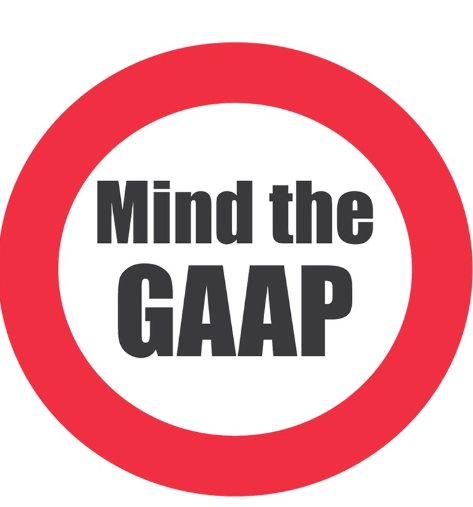Start today and get one month free.
This article is written by our friends at FreshBooks.
If you’re a small business owner, chances are you’ve already asked yourself at least one of these questions.
Advanced payments, retainers, and deposits are all different ways to collect a very important liability on your books: Unearned revenue.
Read on to find out what exactly unearned revenue is and three ways it can be good for business.
The truth about unearned revenue
Despite its name, unearned revenue is not actually revenue—yet. That’s because it’s revenue you haven’t actually earned. You collect it in advance, as prepayment before completing a project or delivering a service for a client. Which means it will initially go under your liability account.
It also goes by other names, like deferred income, unearned income, or deferred revenue.
Some common examples of unearned revenue include:
- Service contracts paid in advance
- Legal retainers paid in advance
- Advance rent payments
Make it official: how to record unearned revenue
When doing your bookkeeping, how do you record unearned revenue? Since unearned revenue hasn’t actually been earned yet, it starts out as a liability on your books.
For example: Imagine charging your client a $2,000 advance for a project.
A $2,000 credit would be recorded as unearned revenue on your balance sheet under current liabilities. And since assets need to equal liabilities in the same period, you’ll also need to debit your cash account by $2,000 under current assets.
Here’s what the journal entry would look like:
What does this mean for you?
You just gained $2,000 in your cash account that you can use to keep your business operations up and running! As great as this sounds, don’t forget that this cash hasn’t been realized (i.e. earned).
And any revenue that has not been realized (i.e. unearned revenue) will not appear on your income statement just yet; that is, not until you’ve delivered on the projects and/or services you’ve promised.
Once the project is delivered, an adjusting entry must be made. This means you’ll debit the unearned revenue account by $2,000 and credit the revenue account by $2,000.
Here’s what that journal entry would look like:
Now that this revenue is realized, you can record it on your income statement.
The benefits of unearned revenue
Unearned revenue may be a liability on the books but there are three major benefits for small business owners:
1. Gets money in your pocket, sooner
Cash is king. You need it to survive. It’s what pays the bills and tides you over during dry spells.
But, you can’t always count on your clients to pay you on-time. In fact, according to a study from Freelancer’s Union, 71% of freelancers have trouble getting paid at some point in their careers.
Not getting paid can really affect your cash flow, especially if a late payment means suddenly spending more than you’ve earned in a month.
So what’s your best defense? Collecting revenue in advance before starting a new project. By charging a deposit upfront, you’ll keep your cash flow positive, allowing you to stay afloat.
2. Increases your working capital
It’s every small business owner’s dream: the perfect project just landed in your inbox. It’s exactly what you need to round out your portfolio!
But there’s a catch…it requires a lot of upfront capital that you don’t have.
That’s where working capital comes in. It’s critical for you to cover day-to-day operations and payroll costs. But how do you get the funding you need to meet your capital requirements?
Traditionally, you could take out a loan from the bank. Or, you could just get your clients to pay you sooner, either in installments or upfront as a deposit.
After all, if you’re going to be in debt, it’s better to be in debt to your clients rather than the bank. At least your clients don’t charge you interest.
3. Lets your clients break up payments
Your clients also have their own cash flow to think about. Breaking up their project payments into smaller installments can actually be a big help.
For example, you can give your clients the option to pay in advance for the whole year and offer them a discount for doing so. Or, when a bigger project rolls around, allow your client to pay for the project partially upfront or in installments at major milestones.
On top of being convenient for your clients’ cash flow, payment options are also a surefire way to keep clients committed and engaged in the work being done. After all, they’ve already paid for the project!
How FreshBooks helps collect unearned revenue
Now that you know how great unearned revenue can be for your business, you need to actually collect it from your customers. This is where FreshBooks, a cloud-based accounting and invoicing solution comes in.
With FreshBooks, you have three options to collect unearned revenue:
- Deposits: When creating a new invoice, you can request a deposit from your client. The deposit can either be expressed as a flat fee or a percentage of the invoice.
- Advanced Payments: For subscriptions and other recurring invoices, you can automatically store your client’s credit card information so you can bill them when you need to.
- Retainers: Bill your client for a fixed amount up front and then track time towards their retainer. And, if by the end of the period, you have clocked more hours than the retainer covered, you can easily bill for that excess time on a one-off invoice.
In short
Although unearned revenue is reflected as a liability in accounting-land, there are so many advantages for your business (and your clients too)!
Just don’t forget that you actually need to deliver on the project or services you’ve promised your client.



.png)


.png)
